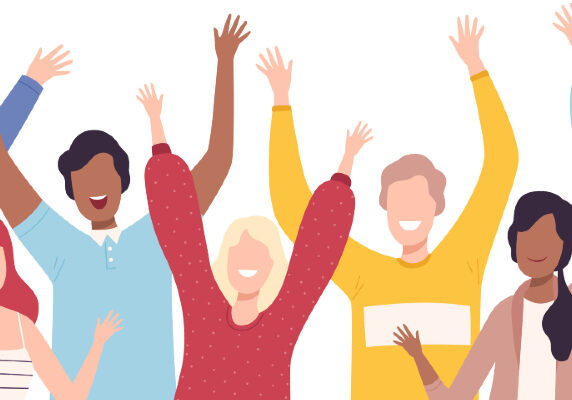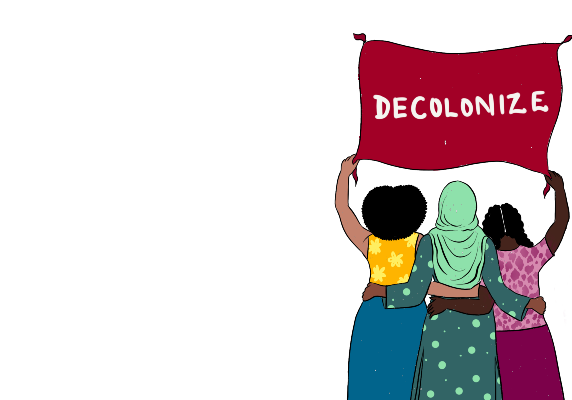Addressing mental health should start with equality
I am Matrika Devkota and I hail from Nepal. As a person with lived experience of mental health conditions and a suicide survivor, I have personally borne the impacts of stigma, prejudice, misconceptions and discrimination.
I have faced many barriers, personally, since the age of 15, when I developed psychosocial issues in my life, and then again professionally while working for the rights and dignity of other people with psychosocial disabilities and mental health conditions in Nepal.
These barriers exist in many forms. They are present in attitudes, institutions, cultural prejudices, how people communicate, socio-political environments and the law.
The common thread is that, ultimately, these barriers are based on the stigma surrounding not only psychosocial issues but the individuals affected by them. In Nepal, there are discriminatory and derogatory laws and regulations against people with mental health conditions and psychosocial disabilities. As a result, people with these conditions are:
- physically chained or wrongfully confined
- stigmatised and discriminated against
- treated as ‘other’; feared, pitied or viewed as being of less value
- excluded in all aspects of life (social, cultural, economic and political)
- incapacitated
- institutionalised
- substituted by guardians or psychiatrists in decision-making processes
- denied from exercising civil, political and economic rights
- denied the opportunities for participation, building livelihoods, and being empowered
- verbally abused.
A marginalised issue
The World Health Organization defines health as a complete state of physical, mental and social well-being, and not merely the absence of disease or infirmity. Yet mental health and well-being are severely marginalised issues in Nepal, as well as globally.
Between 76% and 85% of people with severe mental health conditions in low- and middle-income countries receive no treatment due to the lack of accessible mental health services, the nature of their condition, social stigma, discrimination and other factors. Given this scenario, little can be expected in terms of effective treatment and recovery for people with mental health conditions.
Yet mental health is the inner, intangible, yet indivisible, part of human integrity and socio-economic cohesiveness. So why is it not prioritised?
The impact of funding cuts
Our analysis of Sustainable Development Goal (SDG) 3: Good health and wellbeing in Bond’s recent report on the UK’s global contribution to the SDGs found that progress towards improving access to quality, essential health services has been reversed, disrupted and delayed by the UK’s cuts to Official Development Assistance. For example, the health workforce delivering GOAL, which supports the mental health of Syrian refugees and host communities in Lebanon, was significantly reduced due to funding cuts of 50%. These cuts undermined their capacity to complete crucial research on mental healthcare financing and governance.
In our experience, to prevent mental health conditions and promote good mental health and well-being, mental health should be considered within and beyond health, as a matter of education, awareness, sensitisation, socio-political empowerment, culture, economy, livelihoods, justice and legal rights. There is a need to recognise the legal capacity and assisted or supported decision-making capabilities of people with mental health conditions, instead of substituted decision-making by guardians or psychiatrists.
Subscribe to our newsletter
Our weekly email newsletter, Network News, is an indispensable weekly digest of the latest updates on funding, jobs, resources, news and learning opportunities in the international development sector.
Get Network NewsFor holistic, rights-centred treatment, and the true inclusion of people with mental health conditions within society, living on an equal basis with others, it is necessary to empower and enable the individual medically, socially, economically, politically and culturally. This can be achieved through peer support, self-help groups and the agency of self-advocacy, following the spirits and provisions of the United Nations Convention on the Rights of Persons with Disabilities. I have been employing these approaches for many years with appreciable results.
The need for equity
In our SDG 3 chapter, we recommend that the UK’s contribution to achieving global good health and well-being should be guided by the principles of listening and being directed by people with lived experience of health inequities.
When talking about mental health and well-being we must focus on how the ultimate bargaining power can be obtained for individuals by removing stigma, prejudice and discrimination. Psychosocial support and healthy choices should be available on an equal basis to one and all.
Our analysis of SDG 3 explores these health inequities in more detail and how progress towards health and well-being for all has been impacted by the Covid-19 pandemic, climate change and conflict. The chapter makes four key recommendations that will enable the UK government to better contribute to global progress towards SDG 3. We hope our findings, which you can read here, will go some way to informing a more effective approach to mental health; one that puts people with lived experience – whoever they are and wherever they are from – at the centre.
Category
News & Views



